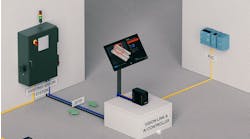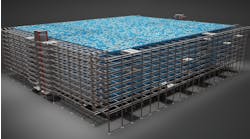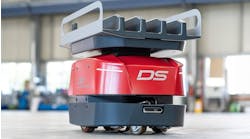Petrochemical Industry Needs Skilled Workers, Says Chevron Phillips Chemical CEO
When the U.S .chemical sector gets done building its projects along the U.S. Gulf Coast in 2015, nearly 90,000 craft workers will be needed. This is according to Peter L. Cella, CEO of Chevron Phillips Chemical Company LP, who spoke at the American Fuel & Petrochemical Manufacturers’ International Petrochemical Conference in San Antonio, Texas.
Sparked by shale resource development, these skilled workers are needed build, operate and maintain the $100 billion of announced chemical projects. Projects include Chevron Phillips Chemical’s U.S. Gulf Coast Petrochemicals Project, which is expected to create 400 long-term jobs as well as 10,000 construction and engineering jobs spanning the length of the project.
“While we will continue to need college graduates with various engineering, accounting, marketing, IT and scientific degrees, our most acute need is for welders, pipefitters, riggers, operators, instrument technicians and other craftspersons, all with two-year degrees or certifications,” said Cella. “For many high school graduates, choosing a technical vocation can be an attractive career path because it provides a great salary and benefits without the significant financial burden of pursuing a four-year degree.”
The average four-year degree comes with a hefty price tag with debt relating to student loans topping $1 trillion in 2013, which is the second largest form of household debt after mortgages, according to College Board and Census data. “We need to do a better job educating our nation’s young people about the viable and rewarding career pathways for those who opt for occupations that require less formal, and less expensive academic training,” said Cella.
And these jobs with less formal training are not low paying. Top-paid hourly operating or maintenance craft employees in Chevron Phillips Chemical’s domestic manufacturing plants, who work overtime in a given year, may earn in total compensation an estimated $90-$100,000.
There is also the issue of worker shortage due to retiring workers. Over the next six years Chevron Phillips Chemical anticipates hiring more than 2,800 to replace a wave of retirements.
Chevron Phillips Chemical Company LP is an indirect wholly-owned subsidiary of Chevron Phillips Chemical Company LLC, one of the world’s top producers of olefins and polyolefins and a leading supplier of aromatics, alpha olefins, styrenics, specialty chemicals, plastic piping and polymer resins. The company employs 5,000 employees across 37 manufacturing and research facilities in eight countries.











